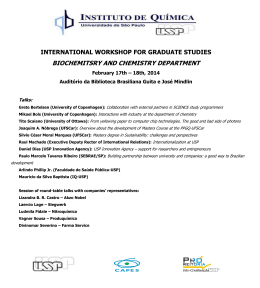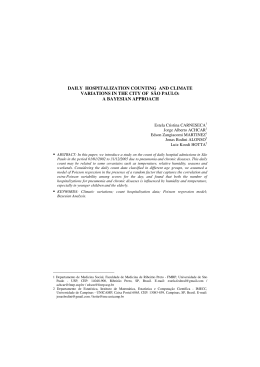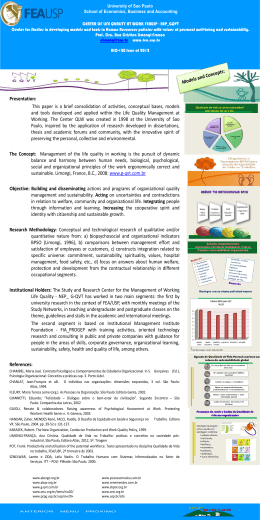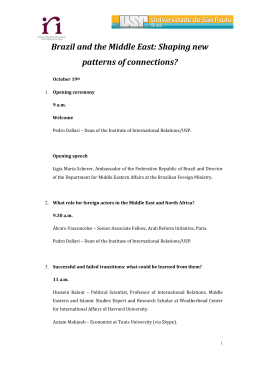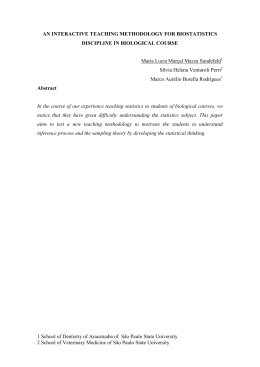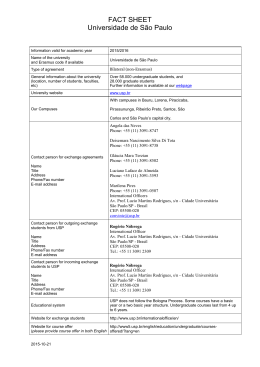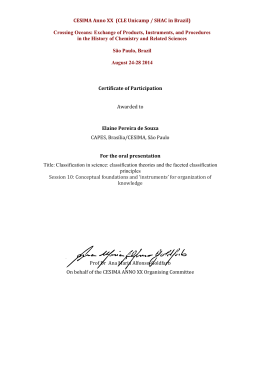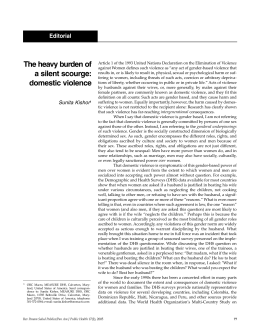Center for the study of violence – nev FAPESP Process 2013/07923-7 The Center for the Study of Violence (NEV/ USP) aims to explore how the legitimacy of key institutions is constructed or jeopardized in the contact between citizens and civil servants. Since 1990, NEV has analyzed aspects of the intertwining of democratic consolidation and the persistence of violence. Recently, the research program focused on the study of the quality of democracy from the perspective of human rights and violence. Successive expectations and predictions about democracy have failed so far: there has been no regression, but democratic rule of law remains a distant goal. How well institutions perform while applying the law, or implementing programs dictated by laws will reflect on their legitimacy. This in turn should reflect on the legitimacy of laws and on the strengthening of rule of law. In this new phase, the center will carry out research focusing on local institutions: the municipal administration; the local school, health center, labor courts, police services, and local justice centers. Emphasis is given to new innovative legislation and programs. The NEV will explore how macro and micro phenomena come together and impact each other. This will be done from the perspective of the citizens, as well as the civil servants, involved. The study will take the form of a longitudinal panel with multiple contacts over a period of time. International comparisons on specific issues will take place through similar topical studies that will be carried out in Mexico City and Johannesburg (the police and courts); and in New Delhi, Cape Town, and Berkeley (housing, land use, use of public space, among others). Cut crossing issues are law enforcement in the frontiers with Ecuador, Mexico and South Africa (Johannesburg). In all settings, gender and vulnerable age groups (youth, children and the elderly) will receive special analyses. In terms of knowledge transfer, NEV will partner with institutions for strategic exchange of information, work methods, and common projects, such as the Brazilian Forum for Public Security; national media such as newspapers, television and radio; local and international non- governmental organizations; and public opinion leaders in the public sector, in particular policy makers and legislators. Workshops to discuss specific forms of knowledge and information exchange will be organized with the aid of knowledge transfer experts who will evaluate our past strategies and suggest the best ways to optimize our new activities. An international seminar will be organized to discuss how to improve the “translation of scientific results to the public at large, in particular those with little access to scientific information.” The objective of the educational program is to develop human resources to carry out interdisciplinary research related to democracy, violence and human rights. The activities will include the organization of a Centre for Permanent Debate on Violence, Human Rights and Democracy in urban settings, designed to stimulate new approaches to such issues in a critical way; an on-line Forum, which will foster debate; and interdisciplinary undergraduate courses. Some of the themes proposed for the courses are Democracy and Authoritarianism, Health Care and Human Rights, Anthropology and Law in Contemporary Brazil, Violence in the Brazilian Culture, and The Authoritarian Discourse. An interdisciplinary course on Innovation in Management applied to the police and the criminal justice system is to take place. The courses are aimed at university students, schools, local governments and non-governmental organizations. biochemistry Center for the study of violence – nev Nome do cepid Host Institution University of São Paulo (USP, campus São Paulo) Associated Institutions El Colegio del Mexico, Mexico Latin American Social Sciences Institute Indian Institute for Human Settlements (IIHS), India University of Columbia, United States University of California, United States University of Cape Town, South Africa Centre for the Study of Violence and Reconciliation, Johannesburg, South Africa State Data Analysis System Foundation, SEADE Principal Investigator Sergio Franca Adorno de Abreu, USP Education and Knowledge Diffusion Coordinator Jaime Ginzburg, USP Technology Transfer Coordinator Nancy das Graças Cardia Co-Principal Investigators Paulo Sérgio de Moraes Sarmento Pinheiro Associated Researchers Ana Lúcia Pastore Schritzmeyer, USP Arturo Alvarado, El Colegio del México Edgar Pieterse, University of Cape Town Fernando Afonso Salla Fernando Carrion, Latin American Social Sciences Institute Gautam Bhan, IIHS Guilherme Assis de Almeida, USP Hugo Van der Merwe, Centre for the Study of Violence and Reconciliation Magdalena Cerda, University of Columbia Marcos Cesar Alvarez, USP Maria Fernanda Tourinho Peres, USP Mariana Thorstensen Possas Renato Sergio de Lima, SEADE Foundation Teresa Caldeira, University of California Center for the Study of Violence – NEV Centro para o Estudo da Violência Director: Sergio Franca Adorno de Abreu Av. Prof. Almeida Prado, 520 Cidade Universitária 05508-070 – São Paulo, SP – Brasil +55 11 3091-4951 [email protected] www.nevusp.org
Download
